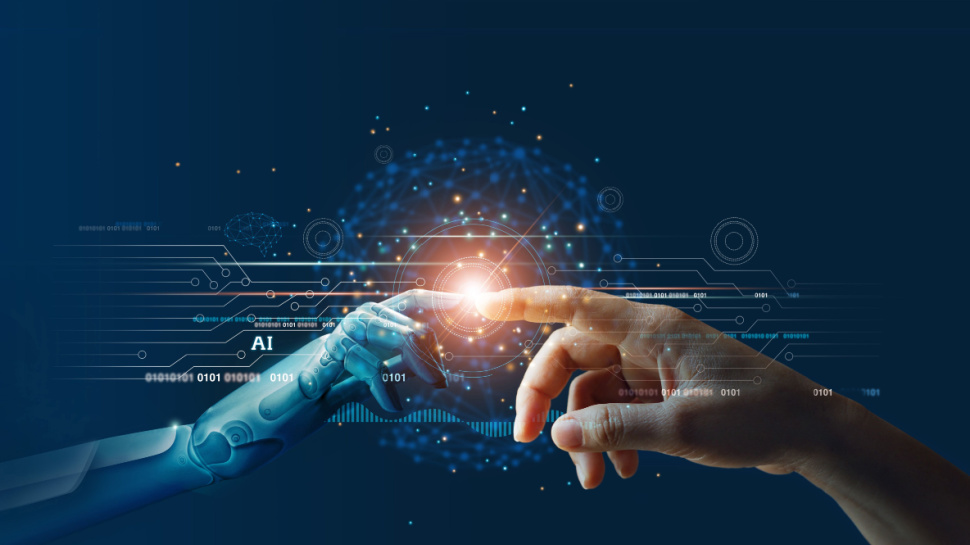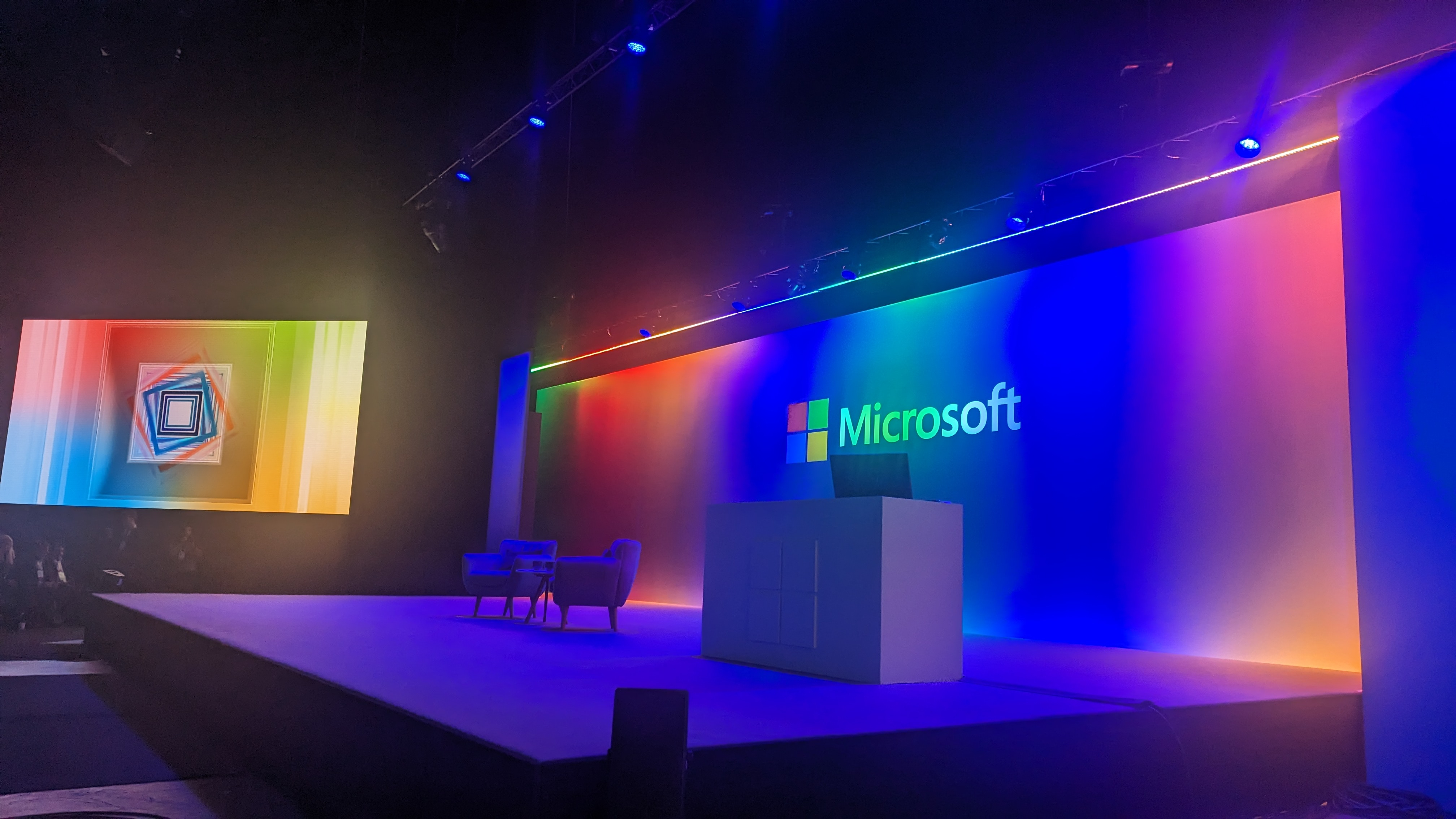At Microsoft’s Envision Tour, which is currently in London, UK, CEO Satya Nadella took to the stage to talk about how AI (artificial intelligence) will be the future of the company – and will usher in a new tech revolution.
I was at the event, and throughout my time there, it was clear that Microsoft as a whole is really pinning its hopes on AI. While there’s a lot to be excited about, I can’t help but worry that the company’s fixation on AI could make it forget about some of the other things the company does well.
Apart from Nadella, who is one of the most recognizable CEOs in the world, and always a passionate, intelligent and interesting speaker, the real star of the show was Copilot. Microsoft’s AI assistant has been popping up on Windows 11 PCs across the world (more than Microsoft expected, apparently), but Windows Copilot is only one guise – as Microsoft announced at an earlier event, there are actually several different Copilot assistants that are integrated into its select products.
Envision is a predominantly enterprise-focused event, so we got to hear a lot about how Copilot has been changing the way Microsoft 365 customers work. I listened with interest to one breakout session that talked about how Copilot integrates into GitHub – the huge open source code repository that Microsoft acquired a few years ago. With Copilot, software developers can drastically speed up the process of coding. Microsoft is keen to stress that AI is a tool that humans use, not something that will replace humans. However, there’s obviously still a worry for many people that for all of Microsoft’s evangelising about how Copilot can improve our lives, it could one day take their jobs.

Nadella’s keynote speech touched on this, and perhaps unsurprisingly, thinks that AI (and Copilots in particular) isn’t a threat to people’s jobs, but an opportunity.
“The age of LLMs (Large Language Models) is the greatest leveller in terms of going up the learning curve – one of the most exciting is Security Copilot," Nadella told us. "We have a shortage of security professionals, and we need people to become professionals to fill those gaps. On job, with Security Copilot, your learning curve gets bent – and that’s exciting.”
Nadella’s point is that rather than seeing a job that you don’t feel qualified for, and not applying for it, AI could help train you up on the job, potentially opening up jobs to a wide range of people who may have not applied. It’s a bold hope - I’m not too convinced many companies will be keen on hiring people with no experience or qualifications for important roles, leaving AI to fill in the gaps. However, he made a much more convincing argument about how learning skills to do with using AI could be a very strong addition to people’s CVs – that’s something almost anyone can do right now.
"An assistant that will walk you through each step. That will be game-changing."
Satya Nadella, Microsoft CEO
Nadella’s faith in AI is dependant on how accessible the technology is for people around the world. He spoke of his dream “where eight billion people can have in their pocket a personalized tutor, a doctor to give you advice… just think about what it would do to agency for any individual. Something I dream about a lot of us, including me, worry about going [outside of their comfort zone]. An assistant that will walk you through each step. That will be game-changing.”
There’s no doubt that Nadella sees Microsoft’s future intrinsically linked with AI, and that we are about to embark on a huge revolution.
“It reminds me of the Microsoft I joined in ’92,” he told the audience. “The reason I say that is because the PC - and Windows in particular - was transformative in the workplace and in the workflow. We all remember what work looked like pre-email, word processing and spreadsheets, and what happened after… At least I do.”

The right direction?
Nadella’s belief in AI is certainly persuasive, and I’m incredibly excited by the possibilities the technology offers. Whether or not I agree with his statement during his keynote that AI is "bigger than the PC, bigger than mobile," however, is another question.
While Microsoft’s forays into AI via its Bing search engine hasn’t convinced me to ditch Google, or switch to its Edge browser, from what I’ve tried of Copilot in Windows 11, I’ve been impressed – even though it’s clearly early days for the feature (it’s still in preview at the moment, with a full release coming later).
But there’s been a perceptible shift in Microsoft’s vision of itself – and who its customers are. There’s a growing feeling that Microsoft is concentrating more on enterprise users – and not just at events like Envision, which are supposed to be enterprise-first.
Take the recent launch of Surface products. In the past, Surface devices were aspirational products aimed at consumers to take on Apple, such as the Surface Pro 9 and Surface Laptop 4. Then, the Surface Go lineup offered budget products that brought premium-feeling devices to consumers who could not afford flagship models. Even with noble failures such as the Surface Earbuds, or the Surface Duo dual-screen phone, it was clear that Microsoft didn’t just want to be seen as the software company behind Office, it wanted to appeal to consumers as well, especially ones who might be swayed by Apple's flashy devices.
That Microsoft seems to be gone. The new lineup of Surface devices were boring, iterative upgrades, with a few baffling choices, such as making the Surface Go 4 only available to commercial partners. With big acquisitions of companies such as GitHub and LinkedIn, there’s little surprise that consumers may feel the company isn’t interested in them.
This push into AI, then, is important for Microsoft for a lot of reasons – and not just in all the ways Nadella envisions. Microsoft has a lot of big ideas about how AI can help us with our careers (and help businesses get more out of their workers) – but I want to see more about how AI can help with our lives, and Surface devices could have been the perfect devices to do just that. So, it’s a shame that Microsoft appears to be losing interest in them.
Those concerns aside, I can’t help but be swept along with Nadella’s clear passion for AI and his belief in the possibilities it provides. One thing he said that really stayed with me was that “AI is only real to me if it can make a real difference.” I can’t argue with that.
Comments